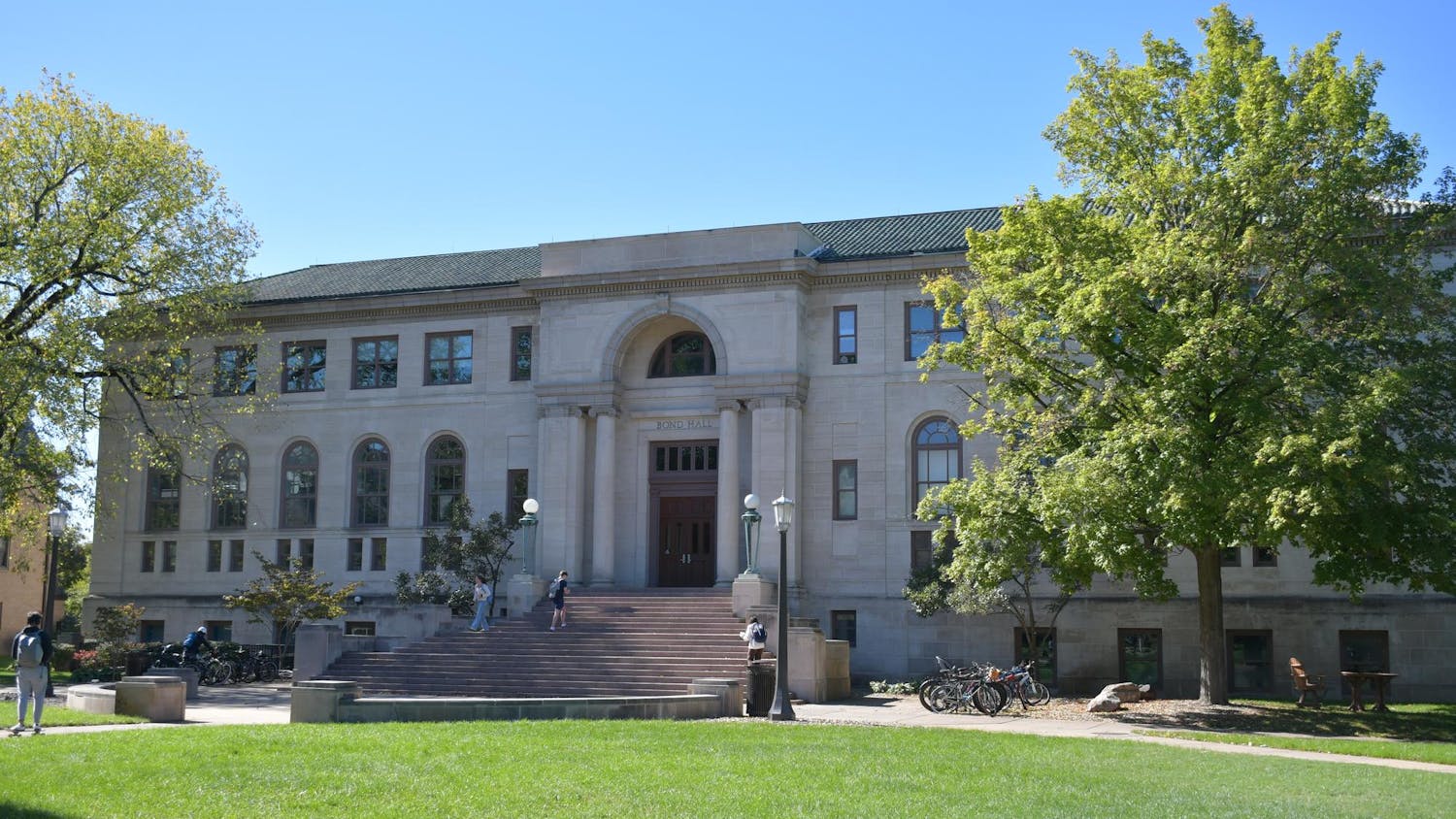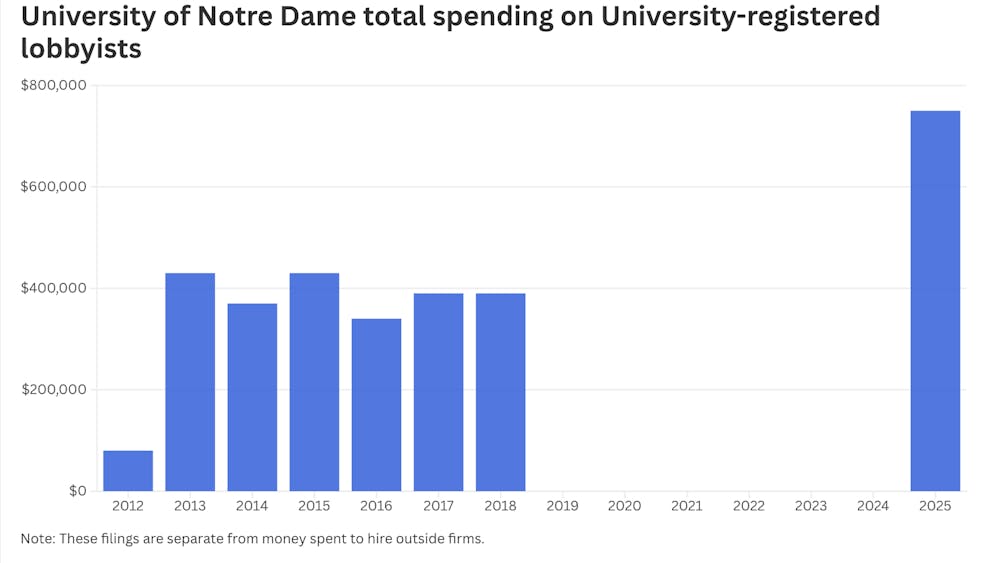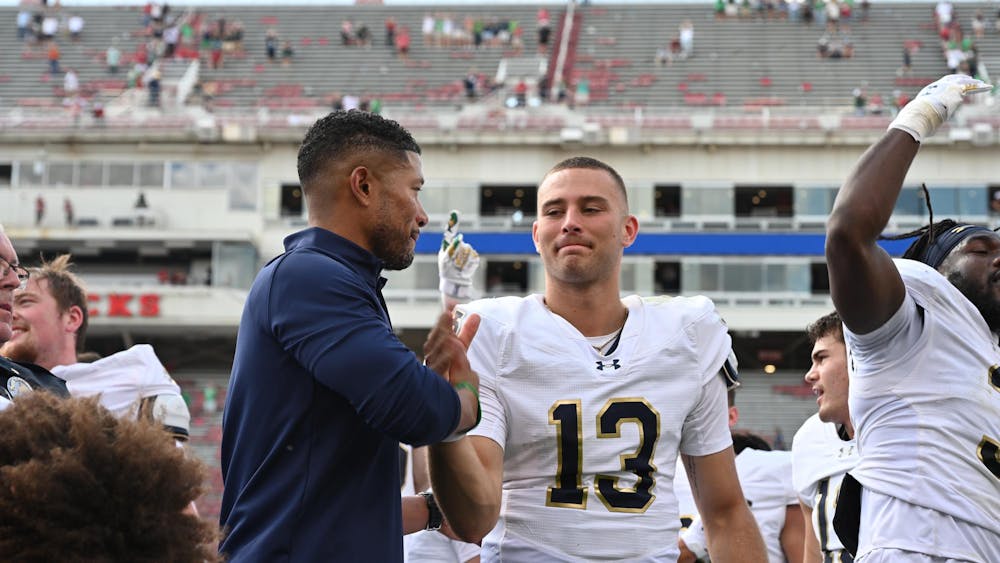When junior Cecily Castillo arrived at Notre Dame her freshman year, she found one thing absent from campus culture were celebrations of Dia de los Muertos, or Day of the Dead. So, during her sophomore year, she went to Campus Ministry to ask why there were only a few Day of the Dead celebrations on campus.
“I asked, ‘Why is it that during my freshman year there were only two or three ofrendas [meaning ‘offerings’ in Spanish] on campus?’” Castillo said. “It didn't feel as much as an open invitation for anyone to place their own things there. I know that that was definitely not intentional, but I remember feeling that way, especially it being my first year having not having that.”
Castillo, a Day of the Dead committee member, said that common misconceptions about this celebration are that it is not compatible with the Catholic faith or that it is an extension of Halloween.
“It is very much accepted in the Catholic faith as this is one big tradition that should be celebrated because it highlights the intersection of faith and culture,” Castillo said. “Nobody wants to think about what happens after they die. But a lot of this is really taking that head on. So much of it is the action of literally laughing at death. The celebration does have a certain amount of reverence to it, and so much of it especially involves prayer for deceased loved ones, but at the same time it is meant to be joyful because it is a celebration of hope. It ties into the distinct Catholic belief that when souls die they go to heaven.”
Day of the Dead celebrations involve putting up brightly colored personalized ofrendas for loved ones that have passed, and generally celebrating loved ones that have died. It typically begins Oct. 31, and continues until Nov. 2. There will be a procession from Cedar Grove Cemetery on Notre Dame Avenue to the Basilica on Friday at 8:15 p.m. for a prayer service followed by a reception and celebration in Coleman-Morse Center.
Junior Kathy Casillas, vice president of the Latino Student Alliance, said typically the group puts up altars in the Latino Institute, but this year Campus Ministry has gotten more involved. In light of that, the altars have been set up in both the Institute and the Basilica.
“Anyone can participate, it’s not even exclusively Catholic,” Casillas said. “That’s the idea behind putting it in the Basilica and the Institute. … It’s supposed to kind of get people aware and share that part of it.”
This year Castillo and Campus Ministry are also working to put ofrendas up in more dorms around campus in hopes to make the dorms a more familiar place to live for students. Ofrendas are currently in 18 dorms, which is an increase of eights dorms from last year.
“I believe they had just announced the required three years housing policy for incoming students,” Castillo said. “I remember a lot of people being upset, and a lot of the concern was for minority students and making them feel more at home in the dorms. So, instead of getting upset and angry, like I saw so many other people doing, I was like, okay, well why don't you just take the first step in trying to make just one thing maybe a little bit familiar to a small section of students. And so that was my main thought in this, aside from the fact that this is a tradition that really does fall right into the Notre Dame community.”
Both Casillas and Castillo said Day of the Dead is not a sad occasion; it’s an opportunity to celebrate the lives of those we have lost.
“It’s important to celebrate it because oftentimes when we think about like people that have died, it's a really sad thought,” Casillas said. “Day of the Dead isn't really about being sad about losing someone. It’s about being happy that they lived.”
Castillo questioned why the topic of death is so taboo, especially concerning Day of the Dead.
“Why should you be afraid to die? If you have faith and you have it, you’re going to go to heaven,” Castillo said. “I grew up with my mother saying that you never say you’re afraid to die because you have faith in that means. So that's mainly what this is. It’s a big celebration of hope, and that’s where all of the colors come from. That’s why none of this is meant to be sad.”
Campus Ministry and Latino Student Alliance expand Dia de Los Muertos celebrations on campus
An altar, or ofrenda, for Dia De Los Muertos sits in the Notre Dame Our Mother Chapel in the Coleman-Morse Center.
An altar, or ofrenda, for Dia De Los Muertos sits in the Notre Dame Our Mother Chapel in the Coleman-Morse Center.









